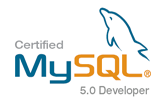Follow-up on HttpWatch integration with Selenium
Simon Perkins of Simtec Ltd (makers of the HttpWatch plugin for Internet Explorer that I mentioned before) was kind enough to get in touch with me via email about my wishlist for YSlow / HttpWatch / AOL Pagetest.
He wasn’t familiar with Selenium, but said that it might be possible to hook up HttpWatch to retrieve performance data dynamically. He pointed to a blog post describing how to do so with Watir, an automated web testing tool written in Ruby. Simtec even has a tutorial about this on their own web site.
While that does sound interesting, it looks like Watir interfaces with HttpWatch with a COM object on Windows, and that’s how it gets the performance information.
The way to do this integration with Selenium would be to expose a set of JavaScript APIs (maybe the same set of objects available through the COM layer?), so one could write JavaScript code to export the HttpWatch information. That’s really what I would love to see.
If that was available, I could write a simple Selenium RC test suite in PHP, remote control a set of browsers from my Linux box, and get access to this performance data from HttpWatch by simply running some JavaScript function.





